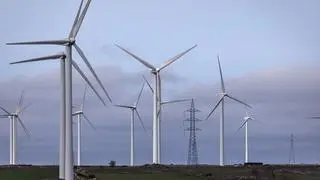The deal inked in 2015 between JSW Energy Ltd and Jaiprakash Power Ventures Limited (JPVL) for 500 megawatt (MW) Bina thermal power plant in Madhya Pradesh has been postponed till December 31, 2017 from an earlier set deadline of May 31, 2017, JSW Energy said in its annual report. The enterprise value of the deal was estimated at Rs 2,700 crore .
The acquisition process is stalled due to SDR/debt restructuring of JPVL as its lenders are yet to give their “green light” to the deal. Both companies have agreed to extend the long stop date of the Bina acquisition till December 31.
Tamnar plant buy on track
Another deal for acquiring 1,000 MW thermal power plant in Tamnar , Chhattisgarh from debt-ridden Jindal Steel & Power Ltd (JSPL) that two brothers-billionaires Sajjan Jindal, Chairman and MD of JSW Energy, and Naveen Jindal, Chairman of JSPL, penned in 2016, “is on track” and is expected to be completed before the long stop date of June 30, 2018, the report said.
For the Tamnar asset, Sajjan Jindal ‘s JSW Energy has paid an interest bearing advance of about Rs 373 crore to JSPL as on March 31, 2017 against the shareholder approved limit of Rs 500 crore, the company said. The total cost of acquisition was estimated by JSW Energy at around Rs 6,500 plus crore.
Financing expansion
JSW Energy considered inorganic growth as one of the ways to getting closer to its target of achieving 10,000 MW capacity. The company currently operates 4,531 MW of power generation capacity with 3,140 MW being thermal and 1,391 MW hydro power.
At the annual general meeting held in Mumbai on Thursday, the company board got approval from shareholders to raise up to Rs 5,000 crore through subscribing to secured and unsecured, redeemable non-convertible debentures, in one or more tranches, and up to Rs 7,500 crore via equity options. Additional long-tern resources to both meet its capex needs as well as refinance debt might be raised by issue of masala bonds of up to $75 million.
Last fiscal, JSW Energy managed to slightly reduce the leverage arriving at net debt to equity ratio to 1.29 compared to 1.49 in the previous fiscal. The consolidated net debt as on March 31 stood at Rs 13,383 crore.
According to Sajjan Jindal, the company will continue to be on the lookout for opportunities to invest wisely and build an enviable portfolio of power assets. “Given the stress in the power sector, we are anticipating consolidation in the domestic space, which will offer us good prospects for investing for the future. We are also evaluating various opportunities involving next generation technologies which are going to be disruptive in nature in the energy space,” he said addressing the AGM.
Bad year
“During FY 2016-17, we saw a continuation of the trend of poor power demand, translating into weak merchant offtake and lower tariffs. This got compounded due to increasing prices of imported coal, thereby impacting our standalone business”, Jindal admitted.
JSW Energy, fourth largest private power generation company in India, reported a sharp fall of around 92 per cent in its consolidated net profit for the March quarter standing at Rs 24 crore as compared to Rs 296 crore of net profit in the same period of last fiscal.
On annual basis, the standalone total revenue for FY17 fell by 30 per cent to Rs 4,369.52 crore as against Rs6,260.71 crore in FY16 while standalone profit for 2017 fiscal fell by 83.52 per cent from Rs 1,182.07 crore in FY16 to Rs 194.75 crore.Consolidated revenue stood at Rs 8,480.43 crore in FY17 registering 15.7 per cent decrease from Fy16 while consolidated profit for 2017 fiscal decreased by 56.5 per cent to Rs 629.03 crore from Rs 1,447.36 crore in FY16.
JSW Energy was among several power utilities in India that, according to Morgan Stanley recent report, will fell large disruption brought by renewable energy. As around 30 per cent of company’s capacity is merchant, it is likely to face tariff pressure from renewables, Morgan Stanley noted while reiterating its “Underweight” rating on JSW Energy.







Comments
Comments have to be in English, and in full sentences. They cannot be abusive or personal. Please abide by our community guidelines for posting your comments.
We have migrated to a new commenting platform. If you are already a registered user of TheHindu Businessline and logged in, you may continue to engage with our articles. If you do not have an account please register and login to post comments. Users can access their older comments by logging into their accounts on Vuukle.